These were taken, I started to say, ‘a couple weeks back now’ but it’s actually over a month ago, so I’m definitely sliding a bit. It was when friends were visiting so we went down to the waterfront, and we were watching the turtles underneath the boardwalk. While there are posted signs that prohibit feeding any wildlife along the boardwalk, it was clear that plenty of people weren’t heeding these, since the turtles had clustered when we paused, obviously expecting a handout (or hoping we’d fall in – one or the other.)
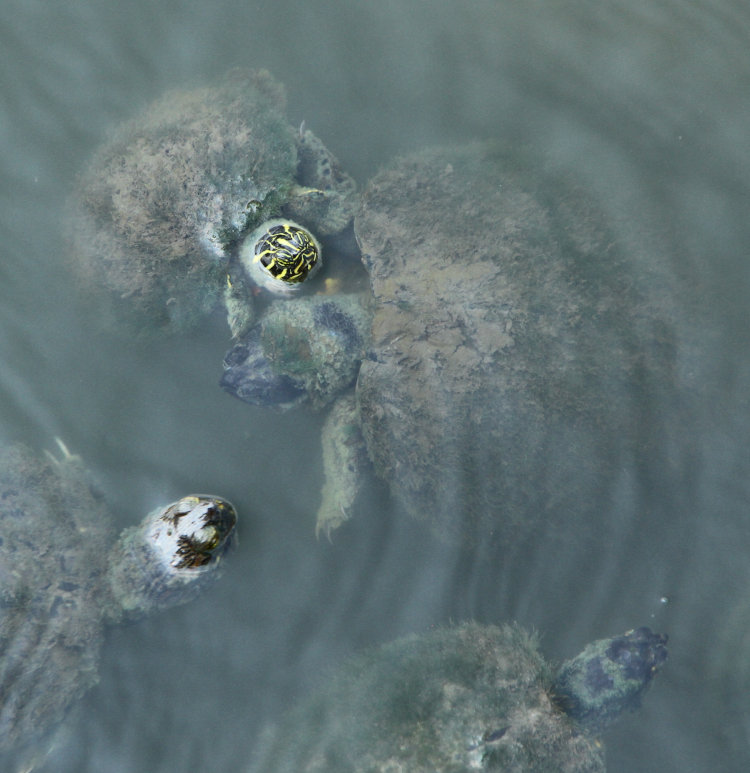
While the angle and the algae-covered carapaces prevent absolute certainty, I’m fairly confident that everything seen here is a yellow-bellied slider (Trachemys scripta scripta,) varying from moderately-sized to quite large. Don’t ask me why that one in particular stands out so well with the vivid facial striping – to the best of my knowledge it’s a typical variant, though it was behaving slightly differently too, as we’ll come back to.
The startling thing was realizing that the wood piling that we were seeing at one spot, wasn’t – it was actually the head of a massive common snapping turtle (Chelydra serpentina.) It dove before I got into position for a clear shot, so I waited around and it returned – or so I believed.
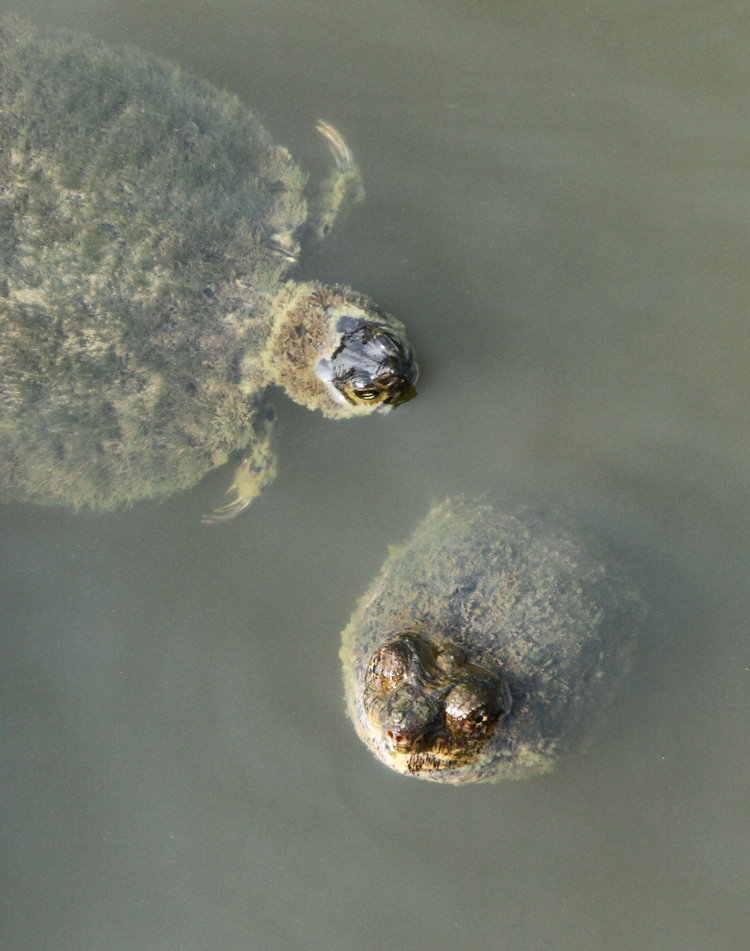
Compared against the rather large slider next to it, this one was certainly quite impressive, and while I had no way to introduce scale, I can tell you that the snapper’s head is larger around than my wrist, and overall probably weighed more than six kilograms. It was only later that we found that the one spotted initially was actually larger, when it reappeared – again when I couldn’t get a clear shot.
The slider alongside was not impressed by this at all, though:
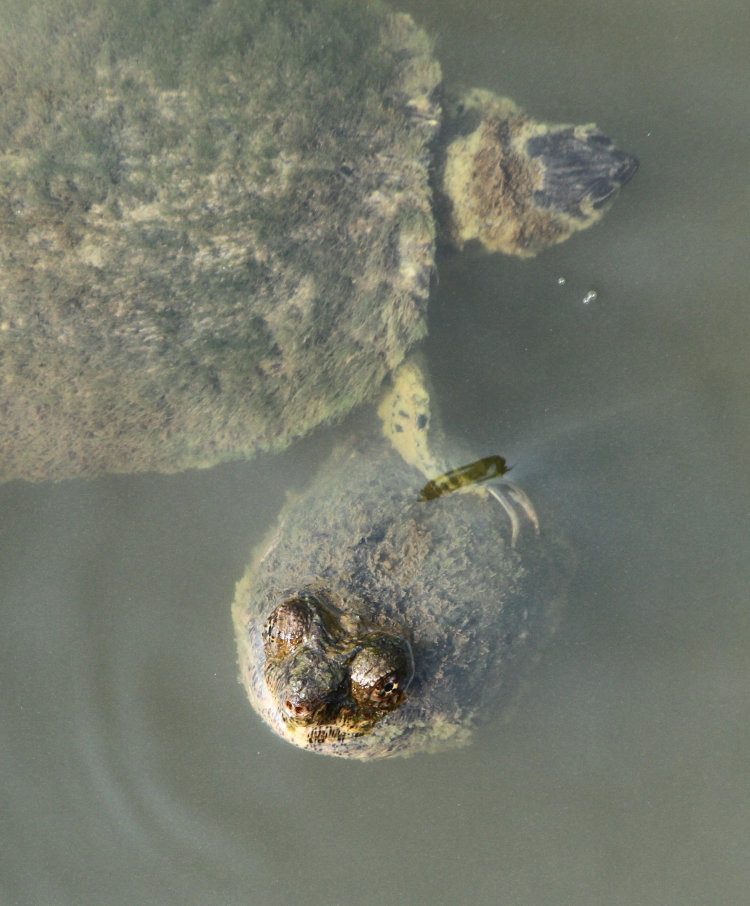
As far as the slider was concerned, the snapper was just landscape, as it pushed off against the snapper’s head in passing. And the snapper took no apparent notice. This isn’t particularly surprising, because while snapping turtles have a wicked reputation, that’s from people harassing them; they don’t prey on other turtles save for very small specimens, sticking to mostly fish with the occasional duckling thrown in. And sliders are strictly vegetarian.
The little bright-headed slider was a bit of a pest, though:
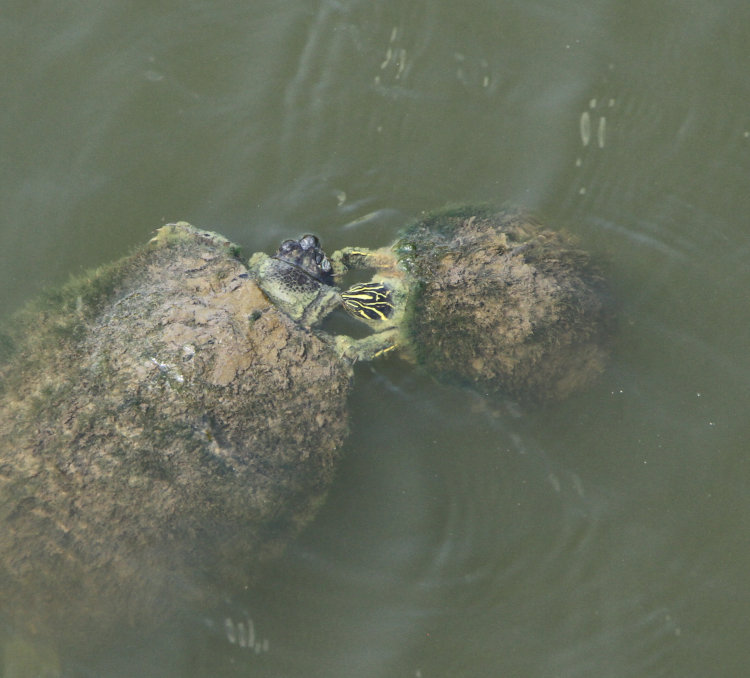
We observed this several times, but the one with the bright stripes was inclined to bite the other sliders (we didn’t see it attempt this with a snapper) on the excess neck skin, to what purpose we can only imagine. You can see the skin stretching out here. The larger slider put up with this for only a moment, though:
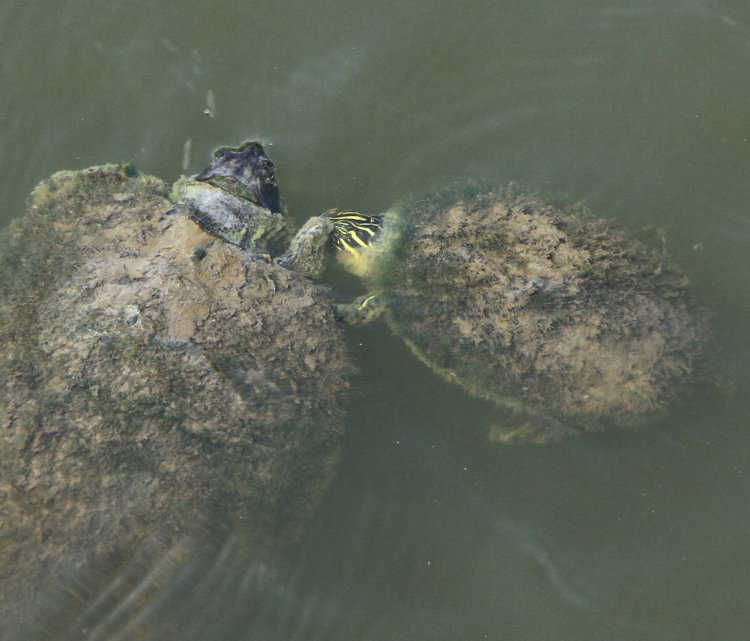
The larger one negligently raised a foreleg and planted its ‘palm’ right smack on the nose of the intrusive little guy, shoving it off with almost casual disregard.
By the way, don’t ask me what causes the prolific algae growth on their carapaces like this; I don’t know if it’s the water quality, or the temperature, or the lack of noticeable current, or something that the turtles do to encourage it. I get the impression that they don’t bask as often as, for instance, the sliders in our backyard ponds, because the algae should dry out and bake off then, to my thinking anyway. But this is also a brackish estuary and the higher salt content might be a factor too. I just takes picchers.
One more, not a tor’le, but shot on the same outing.
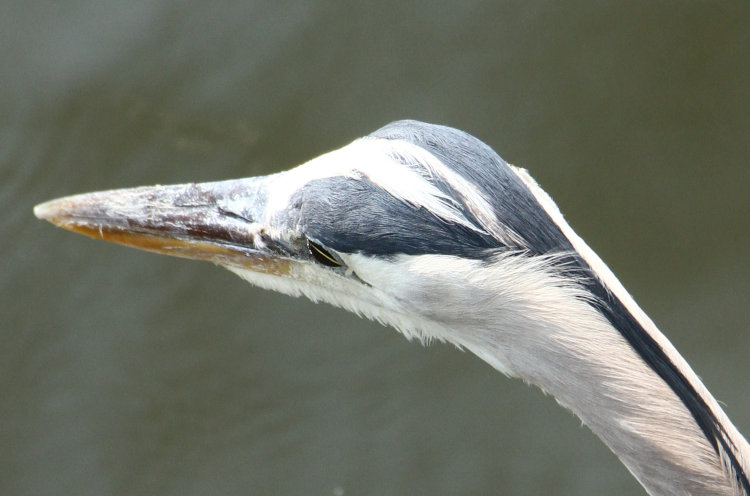
Quite often on the waterfront, a great blue heron (Ardea herodias herodias) is in evidence, supremely used to the proximity of people – I can only assume it’s the same one but have no way of proving it. This time it landed quite close to the boardwalk and remained there as we approached, to the point that I was shooting almost straight down from above just a few meters away. The feather detail isn’t bad, but the eye is the real focus (heh!) because how often do you see it edge-on like this? Okay then.
That cleared out six more – the blog image folder is getting closer to normal now.



















































